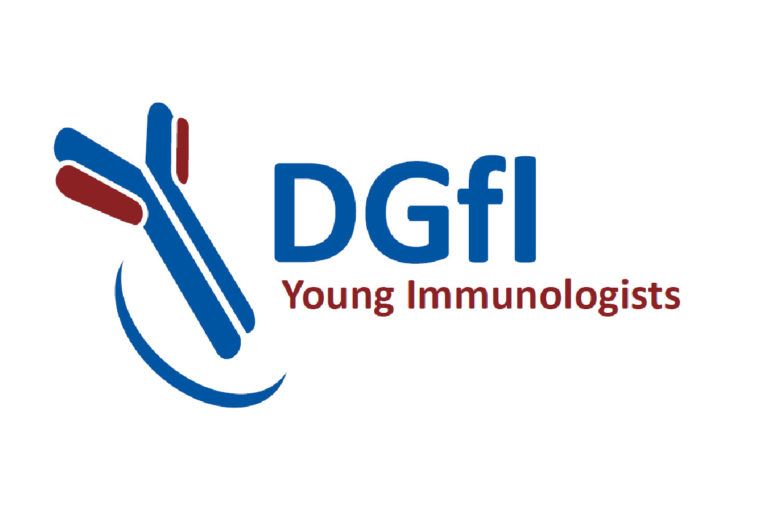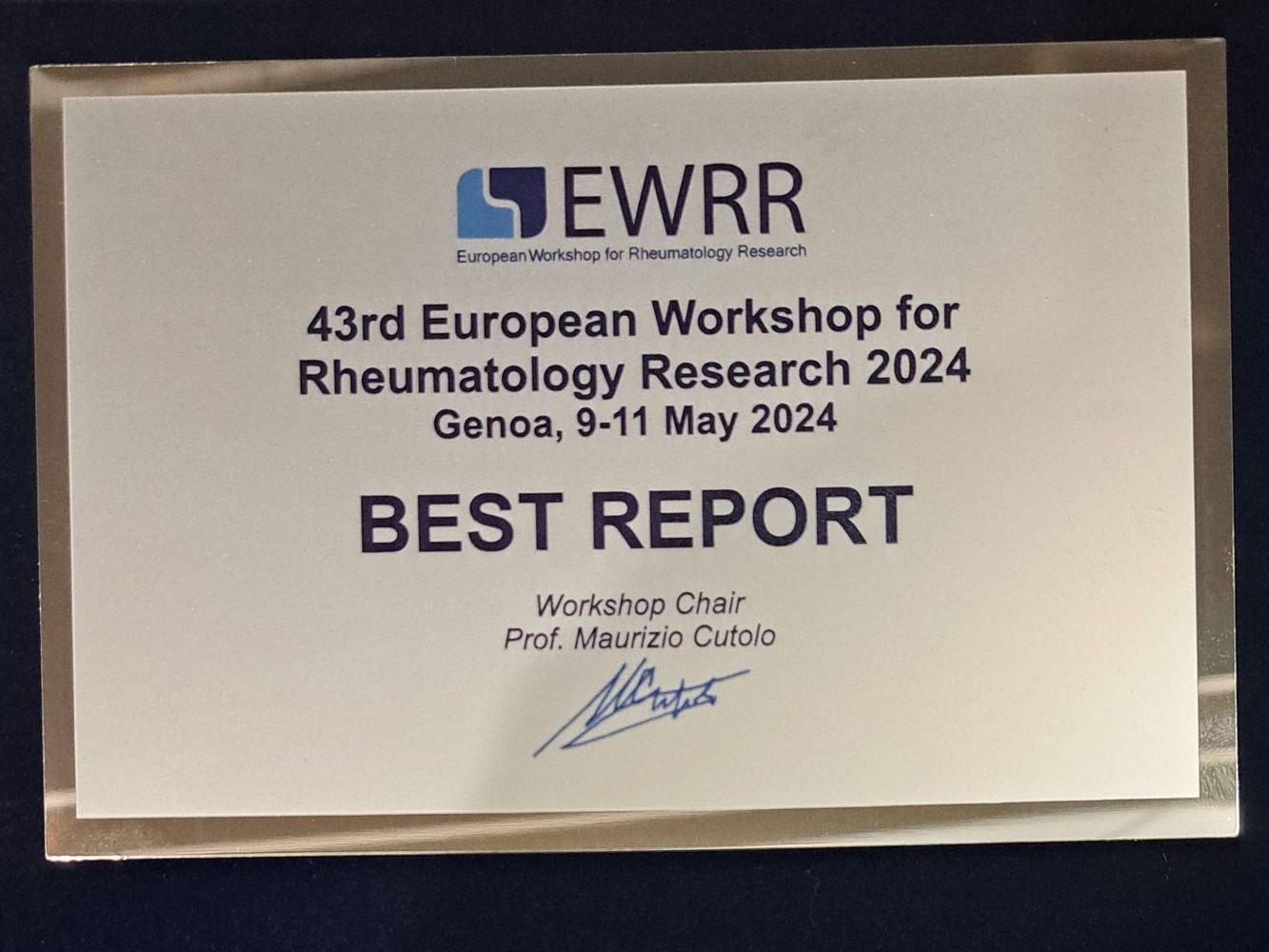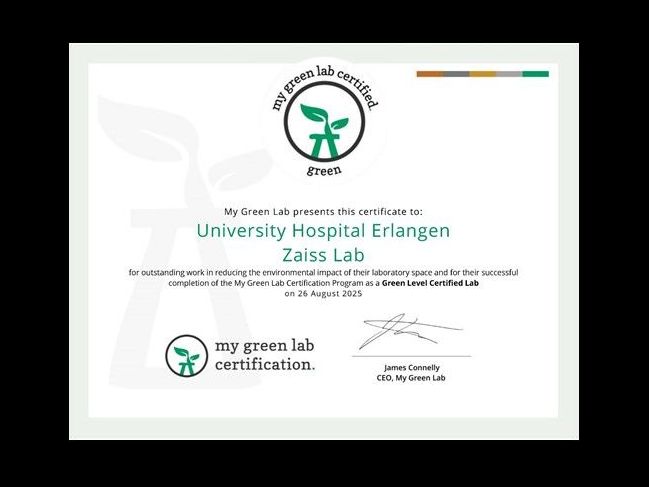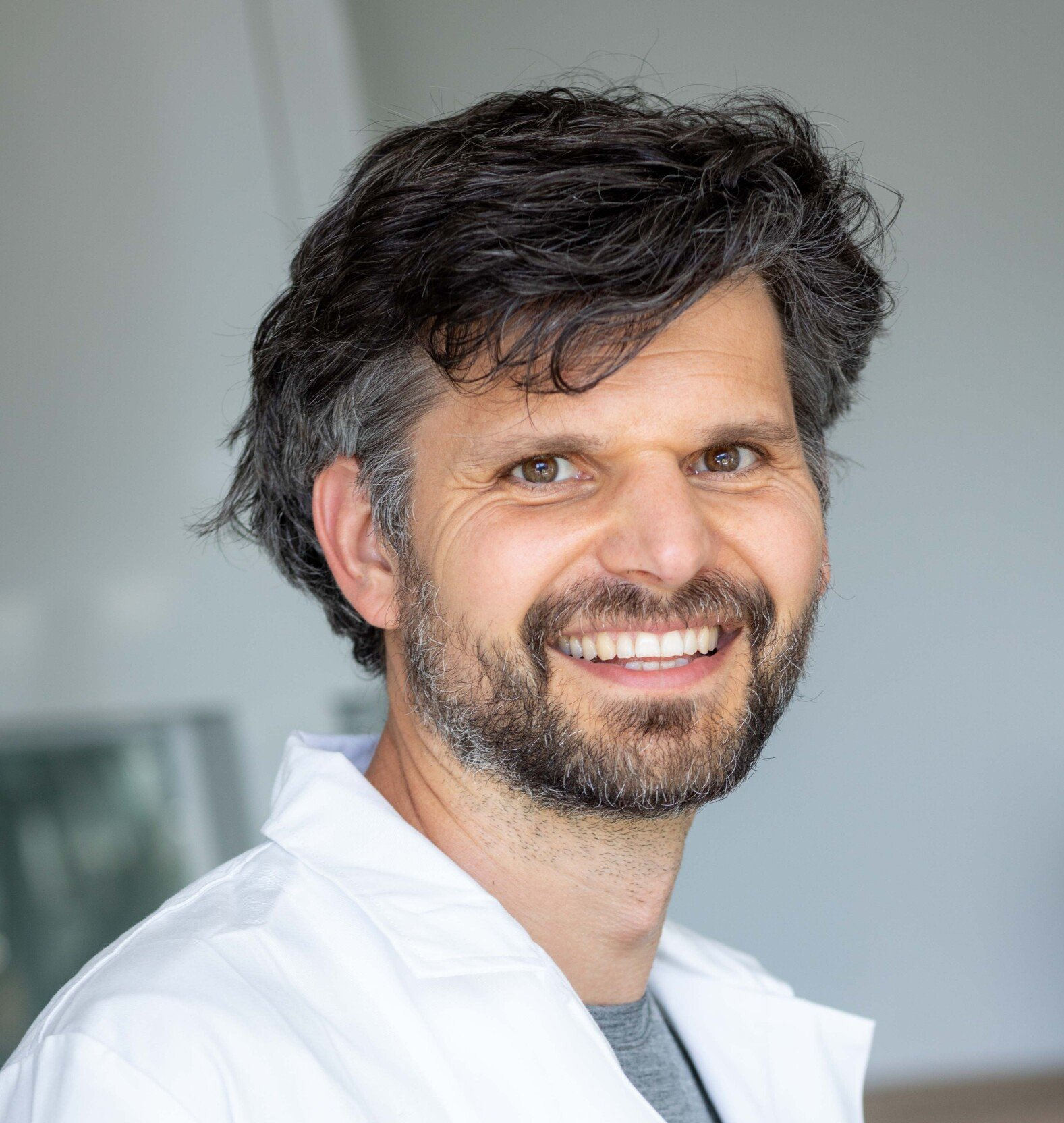My Green Lab-Zertifizierung für nachhaltige Laborpraktiken
NEWS
Check the amazing speaker list for next Gut-Bone-Axis meeting in Naples, Italy in April 2024 on https://www.gut-bone-axis.org/
Our work was selected as a highlight project at this year's EULAR conference in Vienna.
Research
In addition to their function as energy carriers, metabolites of our food also have a role as direct modulators of immune functions. Immune responses require changes in our metabolism, conversely, immune responses also dictate changes in our metabolism. The aim of our research group is to study the interplay of immunology, metabolism and nutrition to contribute to the prevention and resolution of inflammation in autoimmune diseases.
Microbiota-derived histamine drives resolution of rheumatoid arthritis via a Gut–CNS–Joint Axis
Chronic inflammatory diseases like rheumatoid arthritis (RA) activate the central nervous system (CNS), but its role in suppressing peripheral inflammation is less understood. We identified gut microbiota-derived histamine as a key factor in this process. Low histamine levels activate the enteric nervous system, increase inhibitory neurotransmitters in the spinal cord, and restore homeostatic microglia, reducing joint inflammation. This effect depends on intestinal histamine 3 receptor (H3R) signaling, as systemic or intrathecal application was ineffective. Depletion of microglia impaired histamine’s anti-inflammatory effects. Additionally, propionate supplementation increased intestinal histamine in mice and humans. These findings reveal a gut-CNS-joint axis where microbiota-derived histamine promotes arthritis resolution.
Influence of dysbiosis on the intestinal barrier
Dysbiosis of the gut microbiome and a defect in the gut barrier represent a risk factor that can lead to the development of autoimmune diseases such as RA. Mice with collagen-induced arthritis show a change in the intestinal microbiome and increased permeability of the intestinal barrier even before the onset of symptoms. We therefore assume that changes in the composition of the intestinal bacteria and the resulting metabolic products cause changes in the intestinal barrier. This project deals with the question of which early changes in the intestine are involved in the development of arthritis.
Influence of short-chain fatty acids on autoimmunity
Short-chain fatty acids (SCFA) are metabolites of our intestinal bacteria that are produced when fiber is converted. Preventive treatment with SCFA has a protective effect on the development of inflammatory diseases such as RA, but the influence of SCFA on already established inflammatory processes is largely unknown. We investigate the impact of SCFA propionate on RA resolution. Here we analyze the effect of propionate supplementation on the intestinal flora and its released metabolites and how these can alleviate ongoing inflammatory processes. Our goal is to gain a better understanding of the connection between intestinal flora and inflammation and to establish new, nutrition-related therapy options for inflammatory diseases such as rheumatoid arthritis.
The circadian clock in rheumatoid arthritis (RA)
Rheumatoid arthritis patients show diurnal variations of symptoms and symptom severity pointing towards a role of the circadian clock in active disease. Furthermore, the clinical importance of circadian regulation has been highlighted by the potency of time-of-day dependent therapy administration. However, the role and involvement of the circadian clock in disease onset and pathogenesis of RA is largely unknown. We investigate the circadian clock especially in early RA disease stages in different organs and with its link to the microbiome in a mouse model of rheumatoid arthritis.
Intestinal post-translationally modified proteins and their potential to induce rheumatoid arthritis (RA)
We investigate how modified gut proteins are involved in the early appearance of modified protein antibodies (AMPA) responsible for synovial inflammation in arthritis. Modified proteins can act as novel antigens and provide the basis for early autoantibody production that later cross-reacts with local tissue antigens in the joints, promoting disease onset and disease severity. Therefore, we aim to clarify the role of AMPA in synovial inflammation in RA. It is expected that our findings can be directly applied to novel treatment strategies in emerging RA.
Relationship between intestinal inflammation and bone loss - what role does the hormone erythropoietin play?
Severe bone loss in patients with rheumatoid arthritis is often accompanied by intestinal inflammation. In contrast, patients with chronic inflammatory bowel diseases have an increased risk of developing osteoporosis and osteopenia. Against this background, we are investigating the connection between intestinal inflammation and the development process of arthritis. We also want to specifically investigate the effects of erythropoietin (EPO), a hormone that is mainly released in the kidneys and stimulates the production of red blood cells. In addition, EPO also has effects on other cells, sometimes on the intestinal endothelium - i.e. cells lining blood vessels - and osteoclasts (bone-degrading) and osteoblasts (bone-building progenitor cells). Thus, EPO could be a central link between bone loss and intestinal inflammation.
Post-translational modifications in the intestine induced by helminthic infections
Helminths are a double-edged sword among all parasites, as they can not only cause disease but also modulate autoimmunity. Post-translational modifications are a well-known hallmark of autoimmune diseases, and we found that the mouse helminth Heligmosomoides polygyrus (Hp) promotes acetylation in the gut during infection. Hp is also known to ameliorate bronchial asthma and collagen-induced arthritis in mice, so we are currently working to elucidate the cross-talk between Hp infection, acetylation in the gut, and systemic immune response.
Role of outer membrane vesicles (OMVs) of Prevotella spp. in arthritis
An altered gut microbiota, the expansion of Prevotellaceae members, is increasingly linked to pathogenesis of rheumatoid arthritis (RA), although the underlying mechanisms remain unclear. We found that a strain of Prevotellaceae enhances arthritis incidence in genetically resistant C57BL/6 mice. Inoculation with this bacterium leads to shifts in the gut microbiota, increases intestinal permeability, and activates colonic CD11b⁺CD11c⁺ myeloid cells, promoting Th17 differentiation and joint inflammation. These changes are mirrored by increased innate immune cell activation and elevated IL-6 levels in gut biopsies from new-onset RA patients. Notably, outer membrane vesicles (OMVs) from Prevotellaceae prime bone marrow-derived dendritic cells (BMDCs) to drive Th17 differentiation in an IL-6-dependent manner. We aim to investigate the role of OMVs from Prevotellaceae in arthritis development.
Influence of gut bacteria derived indoles on the gut-brain axis in Rheumatoid Arthritis
Despite optimal control of inflammatory disease, residual chronic pain remains a major unmet medical need in RA. Pain in RA can be secondary to inflammation but can also generate neuroendocrine responses that initiate neurogenic inflammation and enhance cytokine release, leading to persistent hyperalgesia. Recent studies reveal the role of gut microbiota in the genesis and development of the disease (gut-joint axis). Furthermore, the gastrointestinal tract - modulated by the gut microbiota - bidirectionally communicates with the central nervous system (CNS), via the (microbiota-) gut-brain axis. Our work will investigate how indoles, gut bacteria-derived metabolites of tryptophan, in particular indole-3-propionic acid (IPA) influence this cross talk.
Publications
Videos & Media
PODCAST:
Nutrition is the key to everything...
Listen to the Podcast of Dr. Anne Fleck, one of the best-known and most unconventional nutritionists in Germany, explaining the link between nutrition and the development of disease.
Dr. Anne Fleck - Gesundheit und Ernährung mit BRIGITTE LEBEN! | AUDIO NOW
ARTICLES & VIDEOS:
Team
Prof. Mario M. Zaiss, Dr. rer. nat.
I graduated in zoology/ecology (Heidelberg) with a special focus on marine biology. Since then, my scientific curiosity has led me through various exciting areas (osteimmunology, parasitology, nutrition) and places (Greece, US, Switzerland) before I started my own lab in Erlangen in 2016. Since then I have enjoyed working with my fantastic team on various projects with a shared focus on tolerance induction, autoimmunity and the gut-joint axis. Besides science I spend a lot of time outdoors (climbing, cycling, ski touring) with my family & friends.
Alumni

Narges Tajik, Dr. rer. nat.

Sébastian Lucas, Dr. rer. nat.

Vugar Azizov, Dr. rer. nat.

Carolin Brandl, Dr. rer. nat.

Magarete Schimpf, MTA

Ippei Miyagawa, MD

Michael Frech, Dr. rer. nat.

Michel Hübner, M.Sc.

Catarina Schneider, M.Sc.

Fabian Schälter, Dr. rer. nat.

Agnus Monica Davis, M.Sc.

Sanjukta Gubbi Praveen, M.Sc.

Selina Eichhorn, B.Sc.

Kerstin Dürholz, Dr. rer. nat.

Alejandro Espinosa Sosa, MD/ M.Sc.

Sirka Dormeyer, M.Sc.
Neuer Text

Ilann Sarfati, M.Sc.
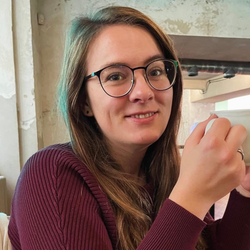
Lena Marx, Dr. rer. nat.

Yuichi Maeda, MD
Neuer Text
Neuer Text
LabLife
Events
-
Kajak & Kaltgetränke
Defying the summer rain, we enjoyed our kayak trip in the Franconian Switzerland.
-
Christmas Bosseln
During our Christmas Party 2024 we followed the north german tradition and went for a round of "Bosseln" in the forest. Afterwards, we refreshed ourselves with barbecue food around the campfire.
-
Schafe & Schaumwein
As the lab outing 2024 we did a hiking trip around Marloffstein with a break in the beer garden and a cuddling session on the sheep pasture.
-
Firmathlon 2024
Two Teams from the Zaiss Lab took part in the Firmathlon 2024, in the disciplins Mountainbike and Cross Fit.
-
Rope Climbing
On February 1th, 2024, the ZaissLab went to an enjoyable teambuilding event in the local DAV climbing centre. Besides being physically and mentally challenging it was a lot of fun!
-
Bike & Beer Tour
Summer lab outing 2023 to Forchheim. Cycling, Picknicking and Minigolf!
-
Merry Christmas!
Med3 Institutes outdoor Christmas Party 2022 in Atzelsberg.
-
Celebration of our awardees at the DGfI '22
Kerstin, Anna, and Eva celebrating their prizes at the DGfI conference!
-
Witches & Wine TourListenelement Nr. 1
-
Canoe & Cave Tour
-
CharityRun
On October 13th, 2019, the 6th charity run "Run against Cancer" took place in the Erlangen Castle Gardens. The Zaiss Lab also had a team of employees and students among the 2,400 or so runners. The highly motivated team was able to contribute more than 200 rounds to support cancer patients and cancer research.
Contact
Prof. Dr. Mario M. Zaiss
Friedrich-Alexander-University Erlangen-Nürnberg (FAU),
Universitätsklinikum Erlangen,
Department of Internal Medicine 3 - Rheumatology and Immunology
Glückstrasse 4a,
D-91054 Erlangen, Germany
